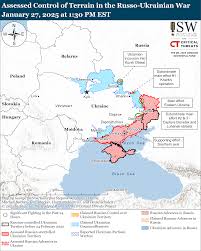The Ongoing Conflict Between Russia and Ukraine: An Analysis

Introduction
The conflict between Russia and Ukraine has become a focal point of international relations, drawing attention from around the globe. As tensions continue to escalate, the implications of this conflict extend beyond the borders of Eastern Europe, impacting global security, economy, and diplomatic relations. Understanding the dynamics of this conflict is crucial for grasping the current geopolitical climate and the future of international stability.
Background of the Conflict
The origins of the Russian Ukraine conflict can be traced back to 2014, when Russia annexed Crimea following Ukraine’s Euromaidan protests and subsequent shift towards a pro-Western stance. This act of annexation was widely condemned by the international community and led to severe sanctions against Russia. Following Crimea, pro-Russian separatist movements erupted in Eastern Ukraine, particularly in the Donetsk and Luhansk regions, leading to an ongoing armed conflict that has claimed thousands of lives and displaced millions.
Current Developments
As of October 2023, the situation remains highly volatile. Ukraine has made significant strides in reclaiming territories with the assistance of military and financial aid from Western allies, including the United States and the European Union. Recently, Ukrainian forces managed to breach Russian defenses in several key areas, indicating a strategic shift that might alter the course of the conflict.
Russia, on the defensive, has responded with increased military presence and sporadic missile attacks aimed at civilian infrastructure. The conflict has not only caused humanitarian crises but has also led to significant economic repercussions, with energy prices soaring and supply chains disrupted across Europe. The recent winter months are expected to test the resolve of both nations and the resilience of their alliances.
International Response
The international response has been multifaceted, with various nations imposing sanctions on Russia and providing military support to Ukraine. The NATO alliance has expressed strong solidarity with Ukraine, enhancing its eastern flank readiness. Additionally, diplomatic efforts aimed at resolving the conflict continue, albeit with little progress so far. Recent peace talks have faced hurdles due to fundamental differences between the parties involved, further complicating the situation.
Conclusion
The conflict between Russia and Ukraine shows no signs of abating, and its potential to escalate poses an ongoing challenge to global peace and security. As both sides prepare for what could be another harsh winter, the international community faces a pivotal point in addressing the crisis. Understanding the implications of this conflict is vital for citizens and policymakers alike, as the outcomes could reshape international relations for years to come.
You may also like


Baroness Amos: A Historic Appointment in UK Politics

Omar Fateh: A Rising Political Star in Canada
SEARCH
LAST NEWS
- Remembering Wendy Richard: The Promise to Co-Star Natalie Cassidy
- How Did Anglian Water Achieve an ‘Essentials’ Rating for Mental Health Accessibility?
- Shai Hope Leads West Indies in T20 World Cup Clash Against South Africa
- What We Know About Weston McKennie: Future at Juventus and Past at Leeds
- What We Know About the Upcoming Live Nation Antitrust Trial